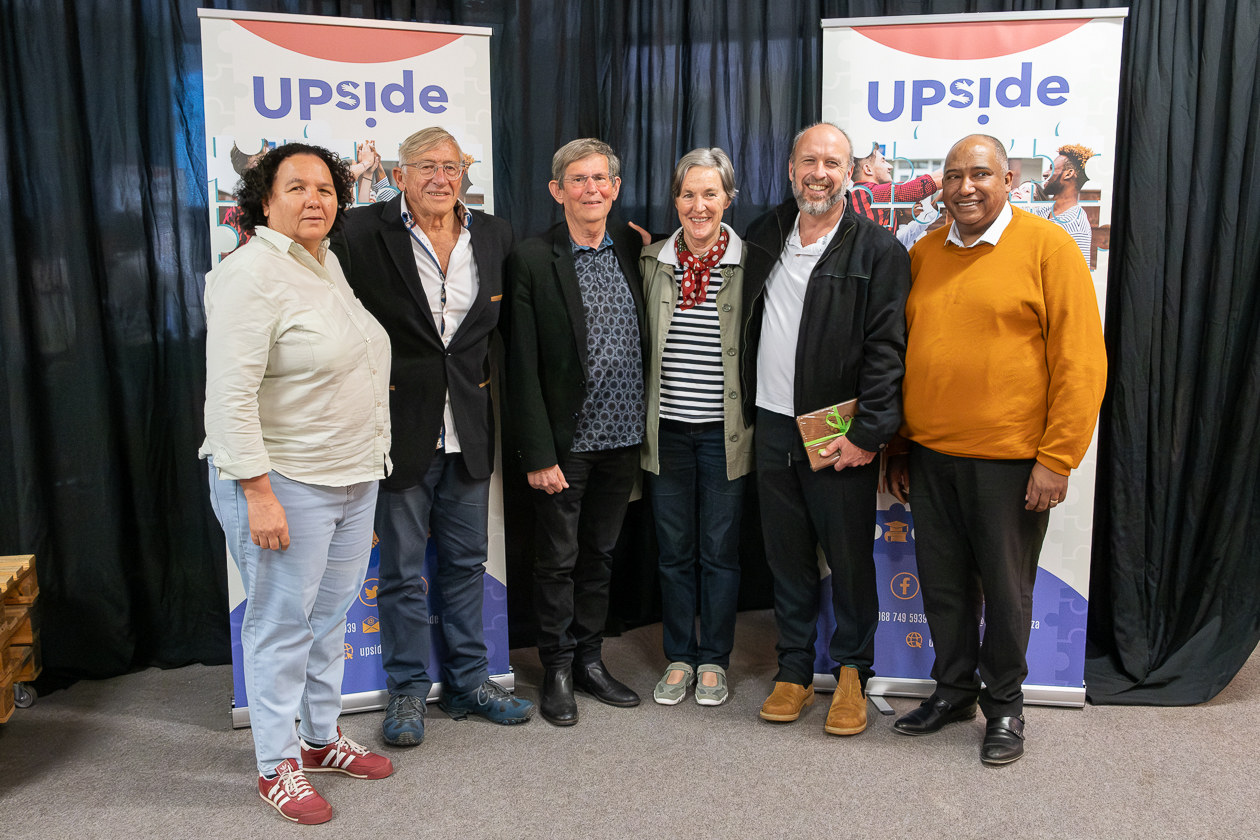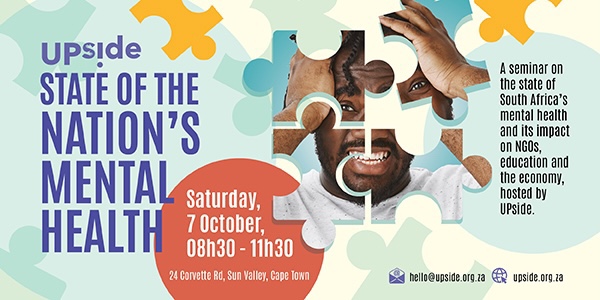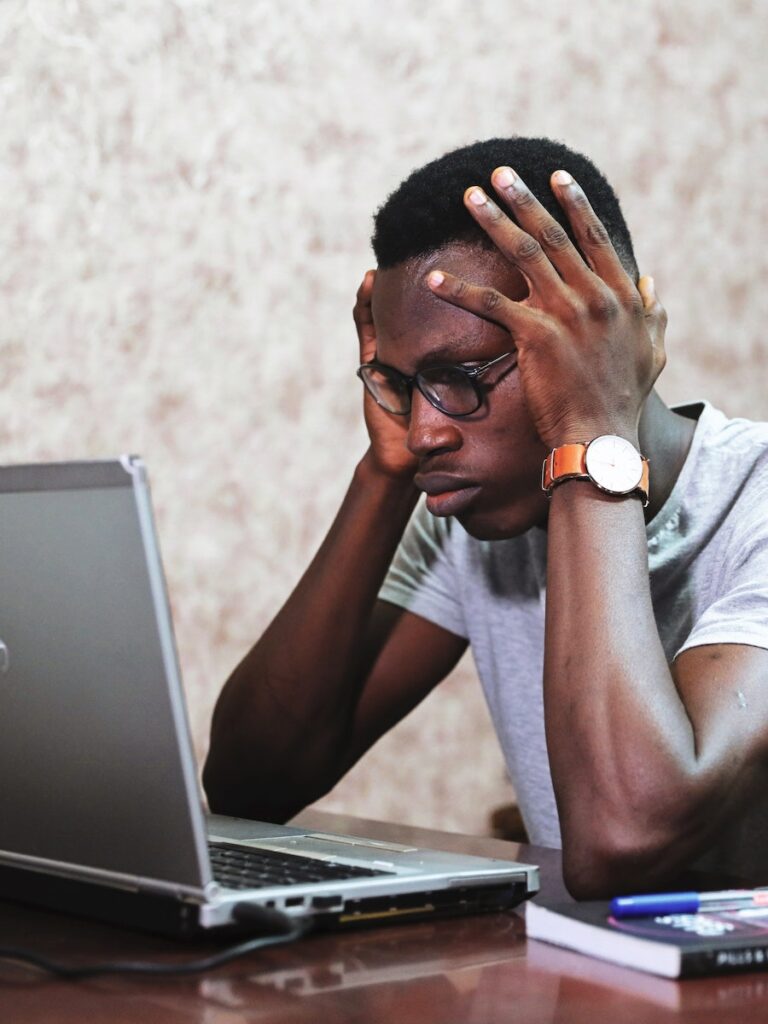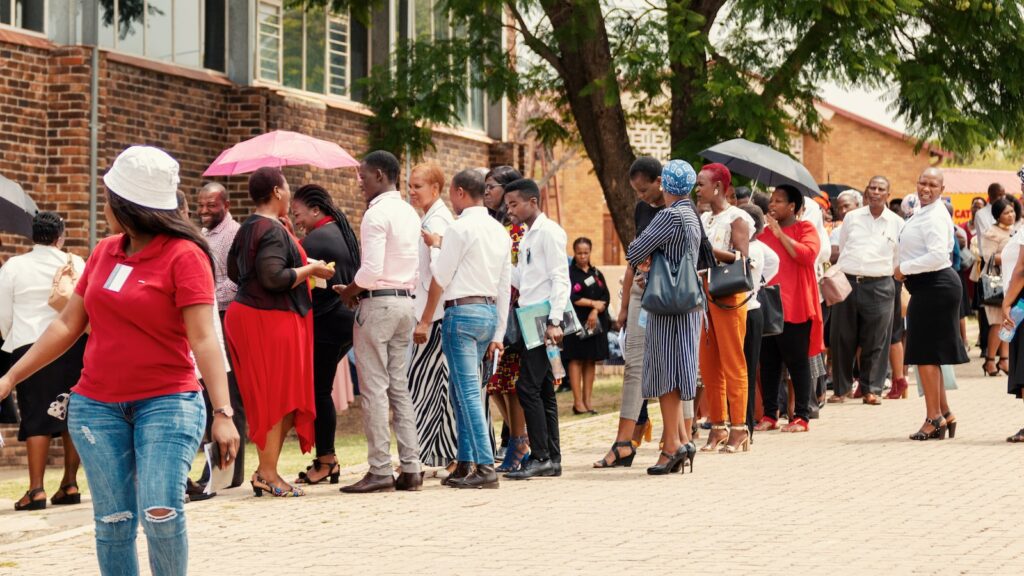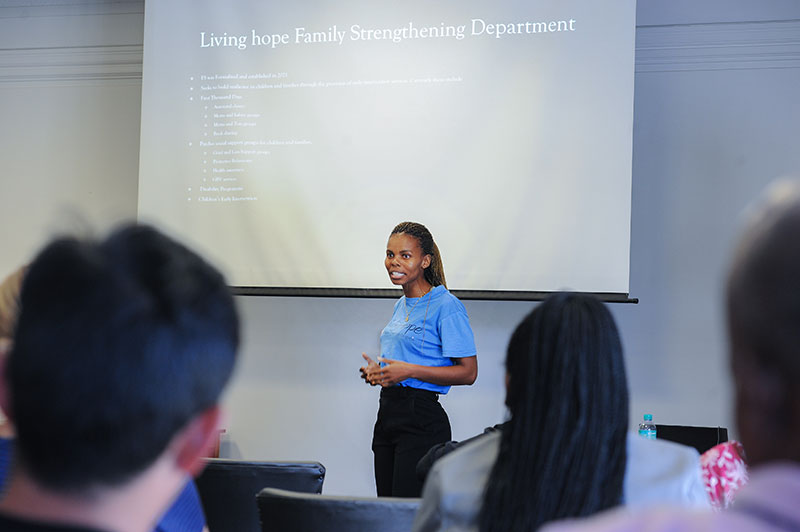UPSIDE MEDIA RELEASE
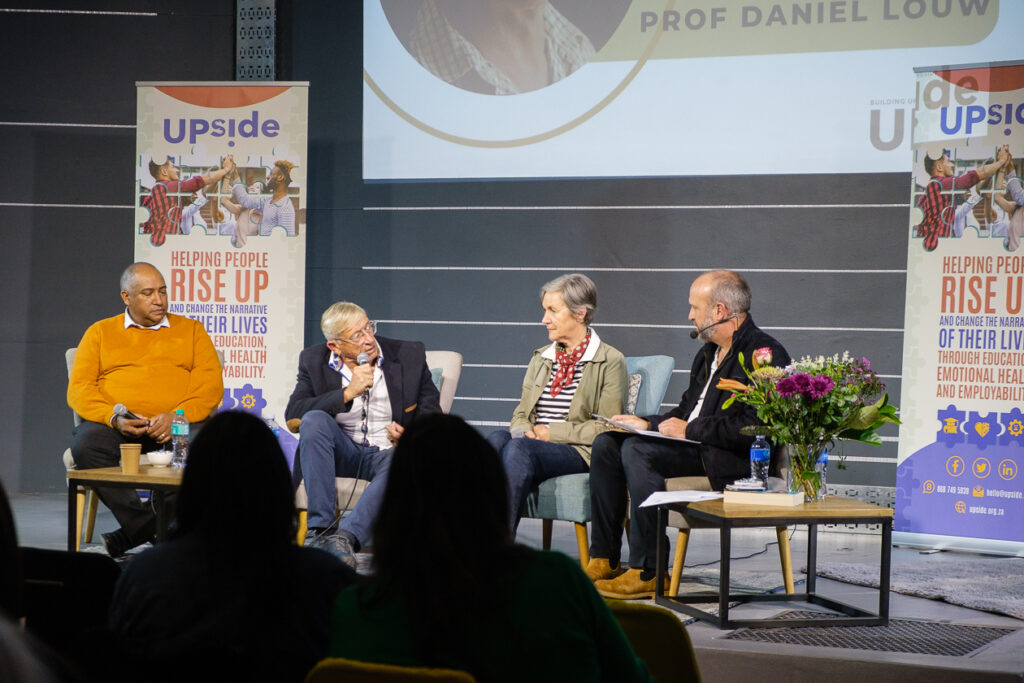
Cape Town, 10 October 2023: A recent mental health seminar highlighted the urgency for mental health resources for Cape Town communities ahead of World Mental Health Day.
UPside Community Services, a registered Non-Profit in the Cape Peninsula, hosted a Mental Health State of the Nation Address on 7 October, offering an integrated and cross-sectoral response with recommendations.
“This seminar promoted stakeholder collaboration to prioritise mental wellness through preventative action and capacity building of our community leaders, positive and informative messaging and facilitating an open discussion on mental health at home, school and the workplace,” said UPside Executive Director Neal Bresler.
The event was attended by almost 100 small business and community leaders and featured leading industry experts Professor Mario Smith, Psychologist and Professor at UWC,
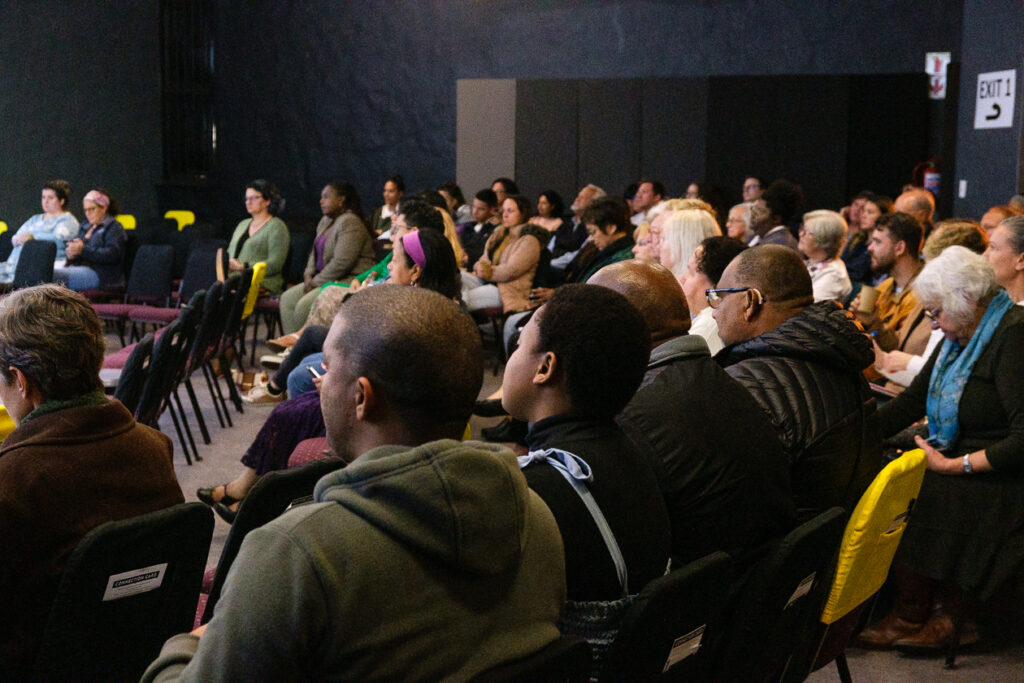
Professor Daniel Louw. Professor in Theology and Pastoral Care at the University of Stellenbosch and Anelia Coetzee, a People and Strategy Development Expert.
The panellists reflected on the importance of family, relationships and community in managing mental health. Neal Bresler opened the discussion with some alarming findings indicating that 25% of South African employees are diagnosed with depression during employment and that only 15% to 25% will seek help.
Prof Louw presented the concepts of the human disposition within relational dynamics and the paradigm shift from crisis thinking to compassionate care.
“We live in a world of stressors,” explained Prof Smith. He listed the impacts on mental health, such as increased demands for living, intensified risks, the gap between policy and service provision, imploding systems, reduced individual and community skills, food insecurity, poverty, reduced capacity for empathy and pandemic residue.
His recommendation for moving forward includes a multilevel approach between systems community, family units and individuals. His advice at an individual level is to live balanced lives, set and observe personal limits, distinguish between colloquial language and clinical language, make informed and appropriate use of self-help and social media, and consolidate resources.
Anelia highlighted the need for businesses to create safe spaces to build trust and a sense of belonging.
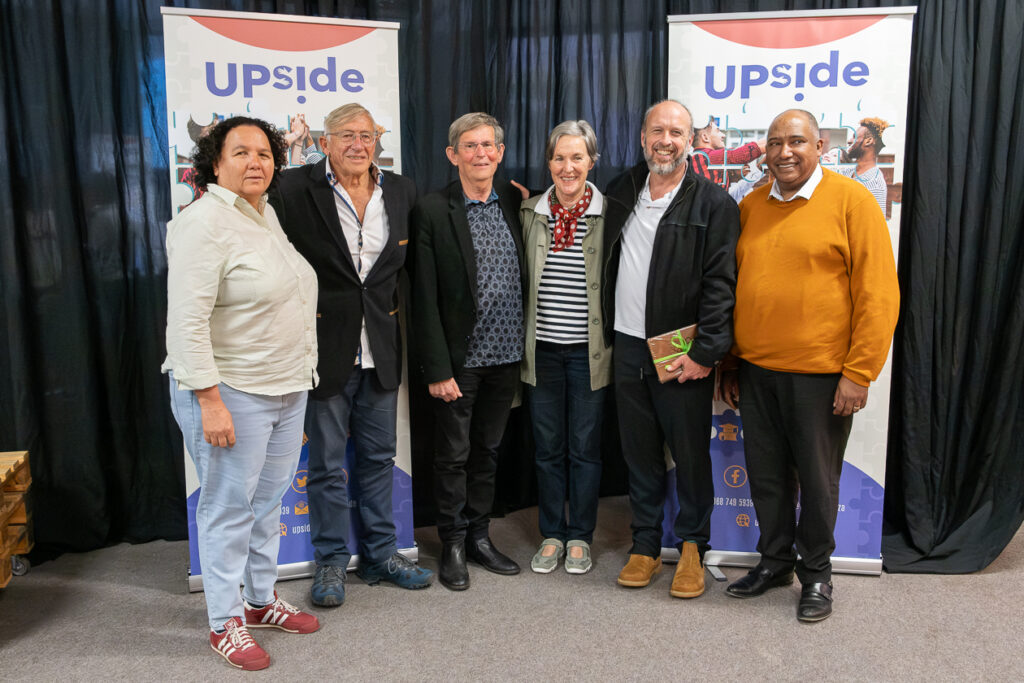
The professionals praised community counsellors, describing their tremendous respect and appreciation for them and highlighted the importance of a joint understanding of the role of screening and understanding the healthcare systems in South Africa.
To conclude the conversation and in support of World Mental Health Day, UPside calls for:
- Increased investment in mental health and counselling support services, integrated within the primary health care, education, community services and structures.
- Improved collaboration between partners in the private sector, academia, government, and civil society to reduce the divide and to provide access to mental health care and services.
